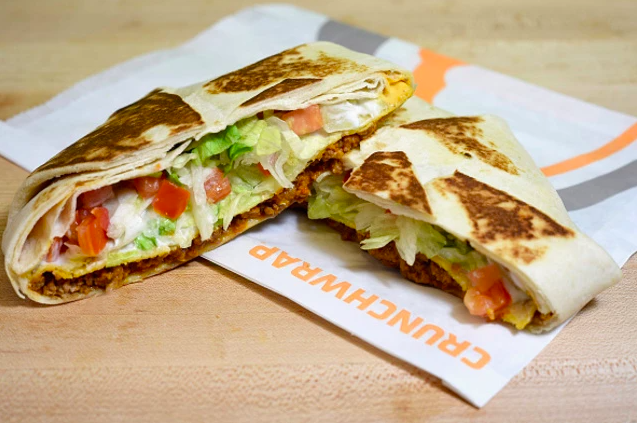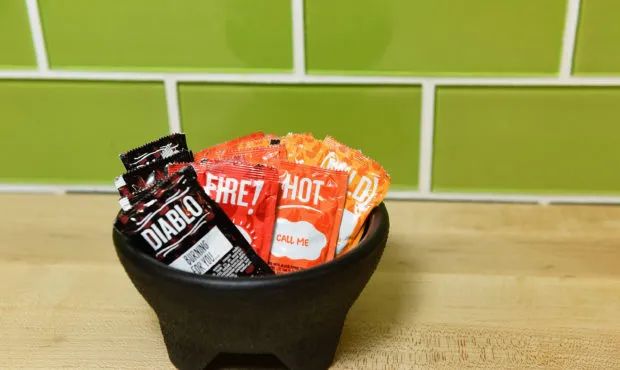The Taco Bell innovation kitchen resides in a nondescript office park in Irvine, California. New Yorker contributor Antonia Hitchens visited the hallowed halls, where every facet of the menu is dissected to perfection. Key players include Renee the taco whisperer, food innovators, dieticians, quality assurance engineers who measure lettuce and weigh rice, and testers who offer feedback on everything from meltability to temperature.
With a stated mission to "provide products to cultural rebels," the company has been on the frontier of stunt food (and stunt events), churning out products with crazy colors and textures that at first glance might not even be identified as food.
In her piece for The New Yorker, Hitchens writes that the company confronts problems with architecture and scalability. Taco Bell goes through more sauce packets in a year than the entire world population. The company could conceivably deplete the world's population of certain ingredients, so they have to be deliberate with their flavor palettes and recipes.
Following an obsession, Taco Bell product developer Lois Carson spent 13 years working to create a new fold that could hold both hard and soft materials. Comparing herself to Thomas Edison, Carson eventually developed and patented the Crunchwrap Supreme, which resonated wildly with consumers, selling 51 million units upon its release.

Lois Carson spent 13 years developing the hexagonal fold that would become the Crunchwrap Supreme, a vessel for both hard and soft ingredients. Photo courtesy of Getty Images.

Taco Bell distributes more of its iconic sauce packets each year than there are people on the planet. Photo courtesy of Getty Images.
